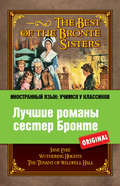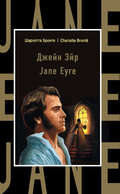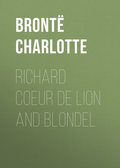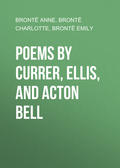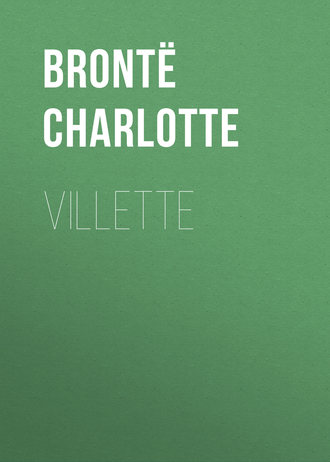
Шарлотта Бронте
Villette
When I re-entered the schoolroom, behold M. Paul raging like a pestilence! Some pupil had not spoken audibly or distinctly enough to suit his ear and taste, and now she and others were weeping, and he was raving from his estrade, almost livid. Curious to mention, as I appeared, he fell on me.
"Was I the mistress of these girls? Did I profess to teach them the conduct befitting ladies? – and did I permit and, he doubted not, encourage them to strangle their mother-tongue in their throats, to mince and mash it between their teeth, as if they had some base cause to be ashamed of the words they uttered? Was this modesty? He knew better. It was a vile pseudo sentiment – the offspring or the forerunner of evil. Rather than submit to this mopping and mowing, this mincing and grimacing, this, grinding of a noble tongue, this general affectation and sickening stubbornness of the pupils of the first class, he would throw them up for a set of insupportable petites maîtresses, and confine himself to teaching the ABC to the babies of the third division."
What could I say to all this? Really nothing; and I hoped he would allow me to be silent. The storm recommenced.
"Every answer to his queries was then refused? It seemed to be considered in that place – that conceited boudoir of a first classe, with its pretentious book-cases, its green-baized desks, its rubbish of flower-stands, its trash of framed pictures and maps, and its foreign surveillante, forsooth! – it seemed to be the fashion to think there that the Professor of Literature was not worthy of a reply! These were new ideas; imported, he did not doubt, straight from 'la Grande Bretagne:' they savoured of island insolence and arrogance."
Lull the second – the girls, not one of whom was ever known to weep a tear for the rebukes of any other master, now all melting like snow-statues before the intemperate heat of M. Emanuel: I not yet much shaken, sitting down, and venturing to resume my work.
Something – either in my continued silence or in the movement of my hand, stitching – transported M. Emanuel beyond the last boundary of patience; he actually sprang from his estrade. The stove stood near my desk, he attacked it; the little iron door was nearly dashed from its hinges, the fuel was made to fly.
"Est-ce que vous avez l'intention de m'insulter?" said he to me, in a low, furious voice, as he thus outraged, under pretence of arranging the fire.
It was time to soothe him a little if possible.
"Mais, Monsieur," said I, "I would not insult you for the world. I remember too well that you once said we should be friends."
I did not intend my voice to falter, but it did: more, I think, through the agitation of late delight than in any spasm of present fear. Still there certainly was something in M. Paul's anger – a kind of passion of emotion – that specially tended to draw tears. I was not unhappy, nor much afraid, yet I wept.
"Allons, allons!" said he presently, looking round and seeing the deluge universal. "Decidedly I am a monster and a ruffian. I have only one pocket-handkerchief," he added, "but if I had twenty, I would offer you each one. Your teacher shall be your representative. Here, Miss Lucy."
And he took forth and held out to me a clean silk handkerchief. Now a person who did not know M. Paul, who was unused to him and his impulses, would naturally have bungled at this offer – declined accepting the same – et cetera. But I too plainly felt this would never do: the slightest hesitation would have been fatal to the incipient treaty of peace. I rose and met the handkerchief half-way, received it with decorum, wiped therewith my eyes, and, resuming my seat, and retaining the flag of truce in my hand and on my lap, took especial care during the remainder of the lesson to touch neither needle nor thimble, scissors nor muslin. Many a jealous glance did M. Paul cast at these implements; he hated them mortally, considering sewing a source of distraction from the attention due to himself. A very eloquent lesson he gave, and very kind and friendly was he to the close. Ere he had done, the clouds were dispersed and the sun shining out – tears were exchanged for smiles.
In quitting the room he paused once more at my desk.
"And your letter?" said he, this time not quite fiercely.
"I have not yet read it, Monsieur."
"Ah! it is too good to read at once; you save it, as, when I was a boy, I used to save a peach whose bloom was very ripe?"
The guess came so near the truth, I could not prevent a suddenly-rising warmth in my face from revealing as much.
"You promise yourself a pleasant moment," said he, "in reading that letter; you will open it when alone – n'est-ce pas? Ah! a smile answers. Well, well! one should not be too harsh; 'la jeunesse n'a qu'un temps.'"
"Monsieur, Monsieur!" I cried, or rather whispered after him, as he turned to go, "do not leave me under a mistake. This is merely a friend's letter. Without reading it, I can vouch for that."
"Je conçois, je conçois: on sait ce que c'est qu'un ami. Bonjour, Mademoiselle!"
"But, Monsieur, here is your handkerchief."
"Keep it, keep it, till the letter is read, then bring it me; I shall read the billet's tenor in your eyes."
When he was gone, the pupils having already poured out of the schoolroom into the berceau, and thence into the garden and court to take their customary recreation before the five-o'clock dinner, I stood a moment thinking, and absently twisting the handkerchief round my arm. For some reason – gladdened, I think, by a sudden return of the golden glimmer of childhood, roused by an unwonted renewal of its buoyancy, made merry by the liberty of the closing hour, and, above all, solaced at heart by the joyous consciousness of that treasure in the case, box, drawer up-stairs, – I fell to playing with the handkerchief as if it were a ball, casting it into the air and catching it – as it fell. The game was stopped by another hand than mine – a hand emerging from a paletôt-sleeve and stretched over my shoulder; it caught the extemporised plaything and bore it away with these sullen words:
"Je vois bien que vous vous moquez de moi et de mes effets."
Really that little man was dreadful: a mere sprite of caprice and, ubiquity: one never knew either his whim or his whereabout.
CHAPTER XXII.
THE LETTER
When all was still in the house; when dinner was over and the noisy recreation-hour past; when darkness had set in, and the quiet lamp of study was lit in the refectory; when the externes were gone home, the clashing door and clamorous bell hushed for the evening; when Madame was safely settled in the salle-à-manger in company with her mother and some friends; I then glided to the kitchen, begged a bougie for one half-hour for a particular occasion, found acceptance of my petition at the hands of my friend Goton, who answered, "Mais certainement, chou-chou, vous en aurez deux, si vous voulez;" and, light in hand, I mounted noiseless to the dormitory.
Great was my chagrin to find in that apartment a pupil gone to bed indisposed, – greater when I recognised, amid the muslin nightcap borders, the "figure chiffonnée" of Mistress Ginevra Fanshawe; supine at this moment, it is true – but certain to wake and overwhelm me with chatter when the interruption would be least acceptable: indeed, as I watched her, a slight twinkling of the eyelids warned me that the present appearance of repose might be but a ruse, assumed to cover sly vigilance over "Timon's" movements; she was not to be trusted. And I had so wished to be alone, just to read my precious letter in peace.
Well, I must go to the classes. Having sought and found my prize in its casket, I descended. Ill-luck pursued me. The classes were undergoing sweeping and purification by candle-light, according to hebdomadal custom: benches were piled on desks, the air was dim with dust, damp coffee-grounds (used by Labassecourien housemaids instead of tea-leaves) darkened the floor; all was hopeless confusion. Baffled, but not beaten, I withdrew, bent as resolutely as ever on finding solitude somewhere.
Taking a key whereof I knew the repository, I mounted three staircases in succession, reached a dark, narrow, silent landing, opened a worm-eaten door, and dived into the deep, black, cold garret. Here none would follow me – none interrupt – not Madame herself. I shut the garret-door; I placed my light on a doddered and mouldy chest of drawers; I put on a shawl, for the air was ice-cold; I took my letter; trembling with sweet impatience, I broke its seal.
"Will it be long – will it be short?" thought I, passing my hand across my eyes to dissipate the silvery dimness of a suave, south-wind shower.
It was long.
"Will it be cool? – will it be kind?"
It was kind.
To my checked, bridled, disciplined expectation, it seemed very kind: to my longing and famished thought it seemed, perhaps, kinder than it was.
So little had I hoped, so much had I feared; there was a fulness of delight in this taste of fruition – such, perhaps, as many a human being passes through life without ever knowing. The poor English teacher in the frosty garret, reading by a dim candle guttering in the wintry air, a letter simply good-natured – nothing more; though that good-nature then seemed to me godlike – was happier than most queens in palaces.
Of course, happiness of such shallow origin could be but brief; yet, while it lasted it was genuine and exquisite: a bubble – but a sweet bubble – of real honey-dew. Dr. John had written to me at length; he had written to me with pleasure; he had written with benignant mood, dwelling with sunny satisfaction on scenes that had passed before his eyes and mine, – on places we had visited together – on conversations we had held – on all the little subject-matter, in short, of the last few halcyon weeks. But the cordial core of the delight was, a conviction the blithe, genial language generously imparted, that it had been poured out not merely to content me– but to gratify himself. A gratification he might never more desire, never more seek – an hypothesis in every point of view approaching the certain; but that concerned the future. This present moment had no pain, no blot, no want; full, pure, perfect, it deeply blessed me. A passing seraph seemed to have rested beside me, leaned towards my heart, and reposed on its throb a softening, cooling, healing, hallowing wing. Dr. John, you pained me afterwards: forgiven be every ill – freely forgiven – for the sake of that one dear remembered good!
Are there wicked things, not human, which envy human bliss? Are there evil influences haunting the air, and poisoning it for man? What was near me?
Something in that vast solitary garret sounded strangely. Most surely and certainly I heard, as it seemed, a stealthy foot on that floor: a sort of gliding out from the direction of the black recess haunted by the malefactor cloaks. I turned: my light was dim; the room was long – but as I live! I saw in the middle of that ghostly chamber a figure all black and white; the skirts straight, narrow, black; the head bandaged, veiled, white.
Say what you will, reader – tell me I was nervous or mad; affirm that I was unsettled by the excitement of that letter; declare that I dreamed; this I vow – I saw there – in that room – on that night – an image like – a NUN.
I cried out; I sickened. Had the shape approached me I might have swooned. It receded: I made for the door. How I descended all the stairs I know not. By instinct I shunned the refectory, and shaped my course to Madame's sitting-room: I burst in. I said —
"There is something in the grenier; I have been there: I saw something.
Go and look at it, all of you!"
I said, "All of you;" for the room seemed to me full of people, though in truth there were but four present: Madame Beck; her mother, Madame Kint, who was out of health, and now staying with her on a visit; her brother, M. Victor Kint, and another gentleman, who, when I entered the room, was conversing with the old lady, and had his back towards the door.
My mortal fear and faintness must have made me deadly pale. I felt cold and shaking. They all rose in consternation; they surrounded me. I urged them to go to the grenier; the sight of the gentlemen did me good and gave me courage: it seemed as if there were some help and hope, with men at hand. I turned to the door, beckoning them to follow. They wanted to stop me, but I said they must come this way: they must see what I had seen – something strange, standing in the middle of the garret. And, now, I remembered my letter, left on the drawers with the light. This precious letter! Flesh or spirit must be defied for its sake. I flew up-stairs, hastening the faster as I knew I was followed: they were obliged to come.
Lo! when I reached the garret-door, all within was dark as a pit: the light was out. Happily some one – Madame, I think, with her usual calm sense – had brought a lamp from the room; speedily, therefore, as they came up, a ray pierced the opaque blackness. There stood the bougie quenched on the drawers; but where was the letter? And I looked for that now, and not for the nun.
"My letter! my letter!" I panted and plained, almost beside myself. I groped on the floor, wringing my hands wildly. Cruel, cruel doom! To have my bit of comfort preternaturally snatched from me, ere I had well tasted its virtue!
I don't know what the others were doing; I could not watch them: they asked me questions I did not answer; they ransacked all corners; they prattled about this and that disarrangement of cloaks, a breach or crack in the sky-light – I know not what. "Something or somebody has been here," was sagely averred.
"Oh! they have taken my letter!" cried the grovelling, groping, monomaniac.
"What letter, Lucy? My dear girl, what letter?" asked a known voice in my ear. Could I believe that ear? No: and I looked up. Could I trust my eyes? Had I recognised the tone? Did I now look on the face of the writer of that very letter? Was this gentleman near me in this dim garret, John Graham – Dr. Bretton himself?
Yes: it was. He had been called in that very evening to prescribe for some access of illness in old Madame Kint; he was the second gentleman present in the salle-à-manger when I entered.
"Was it my letter, Lucy?"
"Your own: yours – the letter you wrote to me. I had come here to read it quietly. I could not find another spot where it was possible to have it to myself. I had saved it all day – never opened it till this evening: it was scarcely glanced over: I cannot bear to lose it. Oh, my letter!"
"Hush! don't cry and distress yourself so cruelly. What is it worth? Hush! Come out of this cold room; they are going to send for the police now to examine further: we need not stay here – come, we will go down."
A warm hand, taking my cold fingers, led me down to a room where there was a fire. Dr. John and I sat before the stove. He talked to me and soothed me with unutterable goodness, promising me twenty letters for the one lost. If there are words and wrongs like knives, whose deep-inflicted lacerations never heal – cutting injuries and insults of serrated and poison-dripping edge – so, too, there are consolations of tone too fine for the ear not fondly and for ever to retain their echo: caressing kindnesses – loved, lingered over through a whole life, recalled with unfaded tenderness, and answering the call with undimmed shine, out of that raven cloud foreshadowing Death himself. I have been told since that Dr. Bretton was not nearly so perfect as I thought him: that his actual character lacked the depth, height, compass, and endurance it possessed in my creed. I don't know: he was as good to me as the well is to the parched wayfarer – as the sun to the shivering jailbird. I remember him heroic. Heroic at this moment will I hold him to be.
He asked me, smiling, why I cared for his letter so very much. I thought, but did not say, that I prized it like the blood in my veins. I only answered that I had so few letters to care for.
"I am sure you did not read it," said he; "or you would think nothing of it!"
"I read it, but only once. I want to read it again. I am sorry it is lost." And I could not help weeping afresh.
"Lucy, Lucy, my poor little god-sister (if there be such a relationship), here —here is your letter. Why is it not better worth such tears, and such tenderly exaggerating faith?"
Curious, characteristic manoeuvre! His quick eye had seen the letter on the floor where I sought it; his hand, as quick, had snatched it up. He had hidden it in his waistcoat pocket. If my trouble had wrought with a whit less stress and reality, I doubt whether he would ever have acknowledged or restored it. Tears of temperature one degree cooler than those I shed would only have amused Dr. John.
Pleasure at regaining made me forget merited reproach for the teasing torment; my joy was great; it could not be concealed: yet I think it broke out more in countenance than language. I said little.
"Are you satisfied now?" asked Dr. John.
I replied that I was – satisfied and happy.
"Well then," he proceeded, "how do you feel physically? Are you growing calmer? Not much: for you tremble like a leaf still."
It seemed to me, however, that I was sufficiently calm: at least I felt no longer terrified. I expressed myself composed.
"You are able, consequently, to tell me what you saw? Your account was quite vague, do you know? You looked white as the wall; but you only spoke of 'something,' not defining what. Was it a man? Was it an animal? What was it?"
"I never will tell exactly what I saw," said I, "unless some one else sees it too, and then I will give corroborative testimony; but otherwise, I shall be discredited and accused of dreaming."
"Tell me," said Dr. Bretton; "I will hear it in my professional character: I look on you now from a professional point of view, and I read, perhaps, all you would conceal – in your eye, which is curiously vivid and restless: in your cheek, which the blood has forsaken; in your hand, which you cannot steady. Come, Lucy, speak and tell me."
"You would laugh – ?"
"If you don't tell me you shall have no more letters."
"You are laughing now."
"I will again take away that single epistle: being mine, I think I have a right to reclaim it."
I felt raillery in his words: it made me grave and quiet; but I folded up the letter and covered it from sight.
"You may hide it, but I can possess it any moment I choose. You don't know my skill in sleight of hand; I might practise as a conjuror if I liked. Mamma says sometimes, too, that I have a harmonizing property of tongue and eye; but you never saw that in me – did you, Lucy?"
"Indeed – indeed – when you were a mere boy I used to see both: far more then than now – for now you are strong, and strength dispenses with subtlety. But still, – Dr. John, you have what they call in this country 'un air fin,' that nobody can, mistake. Madame Beck saw it, and – "
"And liked it," said he, laughing, "because she has it herself. But, Lucy, give me that letter – you don't really care for it."
To this provocative speech I made no answer. Graham in mirthful mood must not be humoured too far. Just now there was a new sort of smile playing about his lips – very sweet, but it grieved me somehow – a new sort of light sparkling in his eyes: not hostile, but not reassuring. I rose to go – I bid him good-night a little sadly.
His sensitiveness – that peculiar, apprehensive, detective faculty of his – felt in a moment the unspoken complaint – the scarce-thought reproach. He asked quietly if I was offended. I shook my head as implying a negative.
"Permit me, then, to speak a little seriously to you before you go. You are in a highly nervous state. I feel sure from what is apparent in your look and manner, however well controlled, that whilst alone this evening in that dismal, perishing sepulchral garret – that dungeon under the leads, smelling of damp and mould, rank with phthisis and catarrh: a place you never ought to enter – that you saw, or thought you saw, some appearance peculiarly calculated to impress the imagination. I know that you are not, nor ever were, subject to material terrors, fears of robbers, &c. – I am not so sure that a visitation, bearing a spectral character, would not shake your very mind. Be calm now. This is all a matter of the nerves, I see: but just specify the vision."
"You will tell nobody?"
"Nobody – most certainly. You may trust me as implicitly as you did Père Silas. Indeed, the doctor is perhaps the safer confessor of the two, though he has not grey hair."
"You will not laugh?"
"Perhaps I may, to do you good: but not in scorn. Lucy, I feel as a friend towards you, though your timid nature is slow to trust."
He now looked like a friend: that indescribable smile and sparkle were gone; those formidable arched curves of lip, nostril, eyebrow, were depressed; repose marked his attitude – attention sobered his aspect. Won to confidence, I told him exactly what I had seen: ere now I had narrated to him the legend of the house – whiling away with that narrative an hour of a certain mild October afternoon, when he and I rode through Bois l'Etang.
He sat and thought, and while he thought, we heard them all coming down-stairs.
"Are they going to interrupt?" said he, glancing at the door with an annoyed expression.
"They will not come here," I answered; for we were in the little salon where Madame never sat in the evening, and where it was by mere chance that heat was still lingering in the stove. They passed the door and went on to the salle-à-manger.
"Now," he pursued, "they will talk about thieves, burglars, and so on: let them do so – mind you say nothing, and keep your resolution of describing your nun to nobody. She may appear to you again: don't start."
"You think then," I said, with secret horror, "she came out of my brain, and is now gone in there, and may glide out again at an hour and a day when I look not for her?"
"I think it a case of spectral illusion: I fear, following on and resulting from long-continued mental conflict."
"Oh, Doctor John – I shudder at the thought of being liable to such an illusion! It seemed so real. Is there no cure? – no preventive?"
"Happiness is the cure – a cheerful mind the preventive: cultivate both."
No mockery in this world ever sounds to me so hollow as that of being told to cultivate happiness. What does such advice mean? Happiness is not a potato, to be planted in mould, and tilled with manure. Happiness is a glory shining far down upon us out of Heaven. She is a divine dew which the soul, on certain of its summer mornings, feels dropping upon it from the amaranth bloom and golden fruitage of Paradise.
"Cultivate happiness!" I said briefly to the doctor: "do you cultivate happiness? How do you manage?"
"I am a cheerful fellow by nature: and then ill-luck has never dogged me. Adversity gave me and my mother one passing scowl and brush, but we defied her, or rather laughed at her, and she went by.".
"There is no cultivation in all this."
"I do not give way to melancholy."
"Yes: I have seen you subdued by that feeling."
"About Ginevra Fanshawe – eh?"
"Did she not sometimes make you miserable?"
"Pooh! stuff! nonsense! You see I am better now."
If a laughing eye with a lively light, and a face bright with beaming and healthy energy, could attest that he was better, better he certainly was.
"You do not look much amiss, or greatly out of condition," I allowed.
"And why, Lucy, can't you look and feel as I do – buoyant, courageous, and fit to defy all the nuns and flirts in Christendom? I would give gold on the spot just to see you snap your fingers. Try the manoeuvre."
"If I were to bring Miss Fanshawe into your presence just now?"
"I vow, Lucy, she should not move me: or, she should move me but by one thing – true, yes, and passionate love. I would accord forgiveness at no less a price."
"Indeed! a smile of hers would have been a fortune to you a while since."
"Transformed, Lucy: transformed! Remember, you once called me a slave! but I am a free man now!"
He stood up: in the port of his head, the carriage of his figure, in his beaming eye and mien, there revealed itself a liberty which was more than ease – a mood which was disdain of his past bondage.
"Miss Fanshawe," he pursued, "has led me through a phase of feeling which is over: I have entered another condition, and am now much disposed to exact love for love – passion for passion – and good measure of it, too."
"Ah, Doctor! Doctor! you said it was your nature to pursue Love under difficulties – to be charmed by a proud insensibility!".
He laughed, and answered, "My nature varies: the mood of one hour is sometimes the mockery of the next. Well, Lucy" (drawing on his gloves), "will the Nun come again to-night, think you?"
"I don't think she will."
"Give her my compliments, if she does – Dr. John's compliments – and entreat her to have the goodness to wait a visit from him. Lucy, was she a pretty nun? Had she a pretty face? You have not told me that yet; and that is the really important point."
"She had a white cloth over her face," said I, "but her eyes glittered."
"Confusion to her goblin trappings!" cried he, irreverently: "but at least she had handsome eyes – bright and soft."
"Cold and fixed," was the reply.
"No, no, we'll none of her: she shall not haunt you, Lucy. Give her that shake of the hand, if she comes again. Will she stand that, do you think?"
I thought it too kind and cordial for a ghost to stand: and so was the smile which matched it, and accompanied his "Good-night."
* * * * *
And had there been anything in the garret? What did they discover? I believe, on the closest examination, their discoveries amounted to very little. They talked, at first, of the cloaks being disturbed; but Madame Beck told me afterwards she thought they hung much as usual: and as for the broken pane in the skylight, she affirmed that aperture was rarely without one or more panes broken or cracked: and besides, a heavy hail-storm had fallen a few days ago. Madame questioned me very closely as to what I had seen, but I only described an obscure figure clothed in black: I took care not to breathe the word "nun," certain that this word would at once suggest to her mind an idea of romance and unreality. She charged me to say nothing on the subject to any servant, pupil, or teacher, and highly commended my discretion in coming to her private salle-à-manger, instead of carrying the tale of horror to the school refectory. Thus the subject dropped. I was left secretly and sadly to wonder, in my own mind, whether that strange thing was of this world, or of a realm beyond the grave; or whether indeed it was only the child of malady, and I of that malady the prey.



